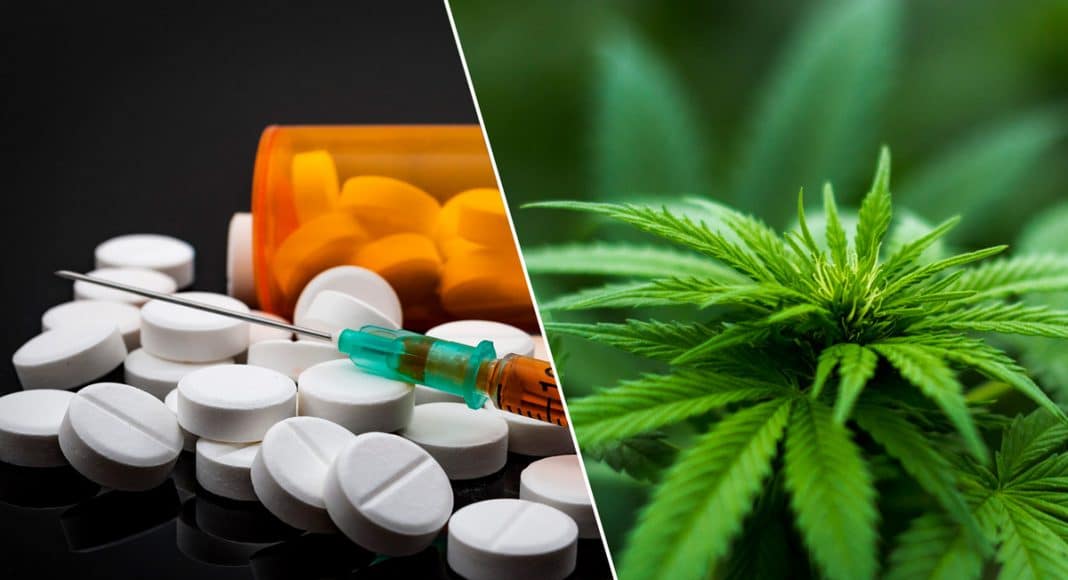Medical marijuana dispensaries save lives. That’s the conclusion from a RAND report funded by the federal government.
The study, published earlier this week in the Journal of Health Economics, demonstrates that states with medical marijuana dispensaries experienced “a significant decline” in opioid deaths over a 10-year period.
The study concludes:
“In short, our findings that legally protected and operating medical marijuana dispensaries reduce opioid-related harms suggests that some individuals may be substituting towards marijuana, reducing the quantity of opioids they consume or forgoing initiation of opiates altogether.
Marijuana is a far less addictive substance than opioids and the potential for overdosing is nearly zero.”
The study was funded by the National Institute on Drug Abuse, the same agency that reported opioid death rates from overdoses have quadrupled since 1999, numbering in the tens of thousands a year. In 1996, California became the first state in the nation to legalize medical marijuana. At about the same time, doctors began to drastically increase prescriptions for opioids, especially for general pain relief. The aftermath has been horrendous.
Opioid-related drug overdoses killed about 116 people every day in 2016 and roughly 11 million people misuse prescription opioids, the US Department of Health and Human Services reports.
On the other hand, not one person has died from a cannabis overdose in human history. And, as this week’s RAND study reaffirms, medical marijuana laws are associated with lower opioid overdose rates. But what the RAND study also shows that the opioid problem is less severe in states that have well-regulated, easy-to-access dispensaries.
“Because legal protection of retail dispensaries does not mean dispensaries are operational, we construct our policy measure to identify the state/year in which dispensaries are both legally protected and open for business,” the researchers wrote. “Dispensaries – retail outlets that sell marijuana to qualified patients – contribute to the decline in opioid overdose death rates.”
Let that last sentence sink in. What the study clearly concludes is that dispensaries help decrease opioid deaths. Period. From the study:
“Using data from just the early period of these laws 1999–2010, dispensaries reduce opioid mortality rates by about 40 percent, above and beyond the reduction from marijuana laws alone. The total effect is estimated to be even larger. When we consider the full time period (1999–2013), the estimates imply that dispensaries reduce opioid mortality rates by about 20 percent while the main effect of having a law is relatively small in magnitude, implying declines of about 5 percent, and not statistically distinguishable from zero. Importantly, together – a marijuana law with a legal, operational dispensary provision – the estimates imply a statistically significant (at the 5 percent level) decline in overdose death rates of about 25 percent.
“It is clear that operational dispensaries are critical. This evidence is consistent with the need for a clear and legal supply chain for medical marijuana policy to have an effect.”
This study supports earlier research that demonstrates how cannabis could help those suffering from opiate abuse. A 2017 survey of patients suffering from pain who used both opioids and cannabis revealed that participants reported more satisfaction with cannabis.
In that study conducted by Amanda Reiman, a medical marijuana researcher, patients reported these reasons why they switched to cannabis over opioids for treatment of pain:
- Less chance of experiencing withdrawal
- Fewer negative side effects
- Cannabis was simply more effective
“Individuals that were choosing to use cannabis instead of opiates to treat pain were doing so because they were having these much better experiences,” according to Reiman.


